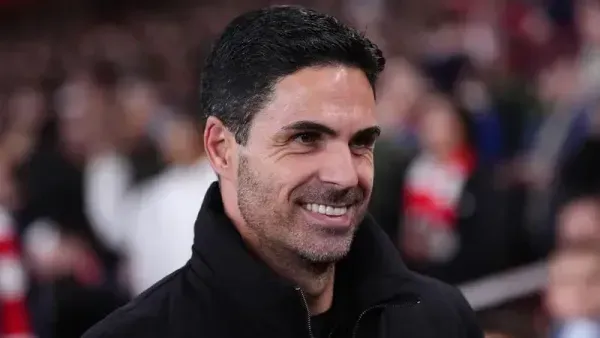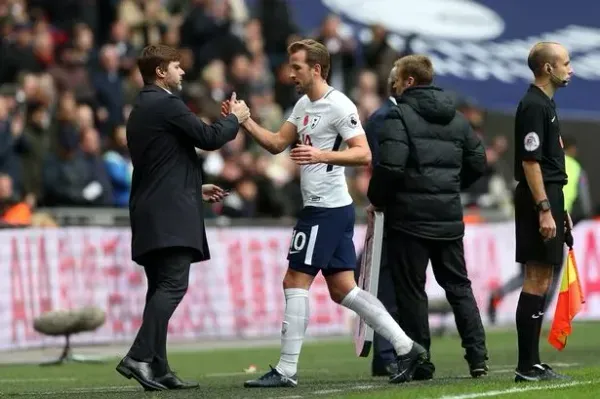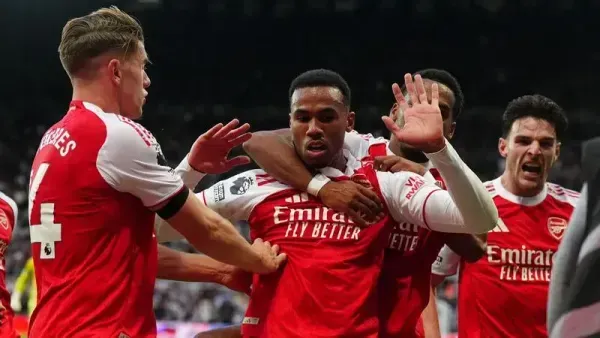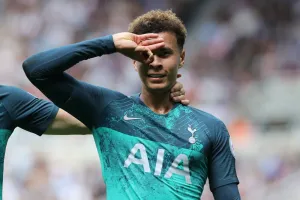For Tottenham Hotspur supporters, watching the trajectory of Mikel Arteta at their most bitter rivals, Arsenal, is a painful lesson in structural faith.
It’s not just the sight of Arsenal competing for the Premier League title; it’s the realization that the Gunners successfully navigated the exact same crossroads that derailed the brilliant, fleeting project of Mauricio Pochettino at Spurs. The comparison between the first five years of Arteta’s tenure and Pochettino’s five and a half years at White Hart Lane is more than just coincidence—it’s a stark illustration of how Daniel Levy fundamentally let down his most successful manager of the modern era.
The truth is simple: Pochettino deserved the Arteta treatment.

The Parallel Ascent: Building the Dynamic Core
The initial parallels between the two projects are striking. Both managers took over clubs languishing in instability and focused on building around a young, dynamic core anchored by high-potential players.
Both managers successfully built a team whose value was greater than the sum of its parts. They generated immense internal momentum, hitting a crucial high-water mark where the difference between stagnation and domination was defined by one factor: financial backing.
The Critical Juncture: Faith vs. Frugality
This is where the two narratives violently diverge. The true measure of a club structure is not how it supports a manager when they are struggling (Arteta endured two 8th-place finishes), but how it supports them when they are on the cusp of glory.
When Arsenal finished second in the 2022/23 season, missing out on the title but establishing a clear identity, the Kroenke hierarchy responded with unwavering, aggressive support. They recognized that the squad needed surgical upgrades to turn ambition into silverware.
Arteta’s Summer 2023 Signings (The Statement of Intent):
- Declan Rice: A statement signing to dominate midfield.
- Kai Havertz: Versatile firepower to increase tactical flexibility.
- Jurriën Timber: Elite defensive depth.
Arsenal’s transfer strategy was clear: invest a massive sum (over £200 million) into a system that was already working. They funded their manager’s specific needs to push the team from genuine contender to title favourite.

The Pochettino Failure: Stagnation by Levy’s Hand
Pochettino hit his undeniable peak in the 2016/17 season, securing 86 points—their highest tally of the Premier League era—and playing scintillating football. The squad was young, brilliant, but thin. It needed reinforcements to rotate the stars and break into the elite bracket.
Pochettino’s Summer 2017 Signings (The Fatal Error):
- Davinson Sánchez: A good, but expensive, centre-back who never truly settled.
- Serge Aurier/Juan Foyth: Positional coverage, not game-changing upgrades.
The investment was timid. Crucially, the following summer (Summer 2018) saw a total collapse of ambition: Spurs made zero signings.
The narrative of "brave Pochettino" relying on youth became a curse. While Kane and Alli desperately needed a refreshed supporting cast and high-level competition, Daniel Levy instead relied on squad stability and the impending move to the new stadium.
This structural negligence meant Pochettino entered the final years of his tenure with an exhausted squad reliant on the same 12-14 players. The momentum stalled, dissent grew, and the lack of funding directly contributed to the collapse in form that culminated in the 2019 Champions League Final loss and his eventual Pochettino sacking.

The Ultimate Lesson: Sustained Support is the Only Currency
Tottenham Hotspur’s great failing under Levy was the cognitive dissonance between ambition (new stadium, Champions League football) and reality (a restrictive financial model). Levy saw Pochettino’s overachievement as a sign he didn't need expensive upgrades, while Arsenal’s board saw Arteta’s overachievement as a sign he deserved elite investment.
The lesson from the North London Derby divide is clear:
- Back the System, Not Just the Man: Arsenal committed to a philosophical and tactical identity, and they stuck with it through difficult patches (something Spurs failed to do with Pochettino post-2017).
- Invest at the Top: True title contention requires investing at the moment of peak momentum. Levy’s failure to buy in 2018 was the moment the Pochettino era began to crumble.
For the current Spurs hierarchy, the challenge is to finally learn this lesson. The initial signs of the new structure under Johan Lange are promising, focusing on a clear scouting and managerial profile. However, until Tottenham demonstrates the same unwavering financial and structural faith in a manager hitting a high watermark that Arsenal showed Arteta, they will remain trapped in the cycle of brilliant but ultimately heart-breaking near-misses.




